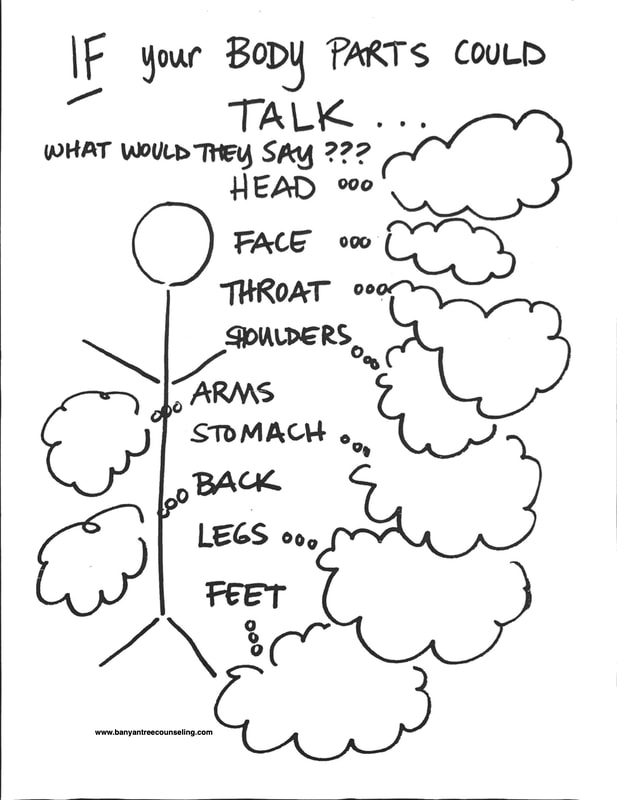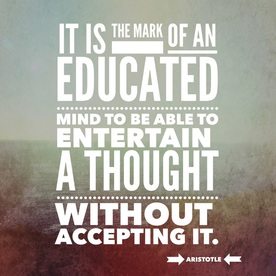- Home
-
Services
- Autism Assessments >
- Coaching
- Couples >
- Discernment Counseling
- Educational Consulting | Special Needs Advocacy >
- Psychiatric Services | Medication Management
- Nutrition
- Parenting + Family Therapy
- Play Therapy for Children
- Separation Counseling + Collaborative Parenting
- Telehealth
- Therapy for Teachers
- Trauma
- Schedule Appointment
-
Meet the Team
- Abby Olmstead
- Adrienne Fisher
- Amber Garcia >
- Amber Miner
- Andrea Miles
- Arionna Wilkerson
- Autumn Martin
- Amber Miner
- Brittany Kai
- Brittany Proxmire
- Brittany Stewart
- Bru Ramirez >
- Chantal D. Hayes
- Christine Ridley
- Emily Ortiz Badalamente
- Hayley McCraw
- Jamie Cullen
- Jared Brinkerhoff
- Jordan Peterson
- Josh Bolle
- Les Gura
- Lisa Carpenter
- Logan King
- Rashaad Nelson
- Sarah Vanderpool
- Savannah Ornt
- Simone Banks
- Tiffany Woods
- Administrative Staff >
- About Us
- Hiring
If your body parts could talk, what would they say?I've used this worksheet with my own children, with students I've taught, and with clients, both children and adults. Teaching kids to "tune in" to their bodies is an essential skill and doesn't always come naturally. There are so many benefits to learning this skill! One is emotional regulation-- kids who can listen to their body have an easier time managing and coping with their feelings, especially the really big ones, like anger, disappointment, fear, frustration, guilt, sadness.. . They feel more capable, confident, have a more secure sense of self. They have less behavioral problems, better social skills with peers, more empathy and supportive relationships... It's not just a skill for kids., Adults benefit in similar ways, too, with overall mental stability, positive sense of self, solid relationships, increased career satisfaction. Take a moment today to tune inward,. Breathe in for 4 seconds, hold for 7, and slowly release for 8. Then scan your body and really listen to what each body part is telling you. Maybe some are silent, while others are screaming! That's ok, no judgement. All you have to do is listen. Click to download the PDF to use at home.
1 Comment
We all know the scenario hilariously played out on last Saturday’s SNL skit: you’re sitting around the thanksgiving dinner table when Aunt Cathy inevitably starts spouting off her doggedly absurd political views (insert eye roll) and it takes all you can muster not to reach across the table and strangle her. Well take heart: it need not come to this. Here are some tips to help you handle the annual holiday dinner without it swiftly turning into Battle Royale.1. Make a PlanThis isn’t your first rodeo. You know the deal: after a few glasses of wine Aunt Cathy won’t stop with her political rantings, which just so happen to entirely contradict your rational and wisely chosen political ideals. You feel your heart start beating fast and your face grow hot. What is she saying?! Take a deep breath and remember your plan. Many of us run the worst-case scenarios in our mind and brace ourselves for a nasty encounter. This can do more harm more than good as it raises anxiety. Try to reframe the scenario in your mind. Say, “This might be stressful, but I can handle it. I’ve been through worse!” Use “If-Then” statements. You know what to expect, so plan your response. “If Uncle Larry starts talking about the refugee issue I am going to calmly tell him ‘I understand you’re coming from but I have respectfully have an alternate viewpoint.’” Another example: “If Uncle Larry won’t let it go, I will excuse myself to the bathroom.” 2. Use Active ListeningWe all want to be heard. These issues are important to us, and rightfully so. When a family member makes a statement that disagrees with the core of your beliefs, it’s only natural to have a strong desire to assert your opposing view. And you can. But first, wait. Take a deep breath. And remember this: When people truly feel heard, they are in a much better place to listen to what you have to say. In other words, if you want Aunt Cathy to gain a shred of understanding toward your opposing viewpoint, you first must listen to her and make her feel heard. The next important thing to remember: You can listen to and understand an opinion without subscribing to it. It’s true. You can. And you should! The foundation for healthy communication is active listening. You won’t have time to teach a psychology class during Thanksgiving dinner but you can guide the table toward healthy communication by example.
Next, muster up your best empathy skills. In this situation it's going to be hard but you can do it! Of course, empathy is the ability to put yourself in someone else’s shoes and imagine what things are like from their perspective. You’ve got to really divorce yourself from your own personal views for a moment (not forever, just for a few minutes!) and see things through Aunt Cathy's eyes. Convey this by summarizing what she’s just said, and authentically tell her how it is you understand what she’s saying. For example, you might say something like, “I can see how you feel that refugees shouldn’t be let into our country. It can be really scary to think that they might put our lives in direct danger. It sounds like you’re saying protection is really important to you. I can understand and appreciate that. I want to feel safe, too.” Ask her to explain anything you might not completely understand. (Remember, you don’t have to believe it to understand it!) This also shows the speaker that you care about what they have to say and want to know more. You could say, “Tell me more about your thoughts on __________ and why you think _____________.” You don’t have to go on forever. A little of this will go a long way in making stubborn Aunt Cathy feel heard and ultimately hear YOUR point of view. 3. Change the Subject You have a 0.01% chance of changing Aunt Cathy’s vote over turkey dinner by arguing with her. Studies have shown that it is rare for a person to change their political opinion through argument. So is it worth it? Depending on your relationship and energy level, sometimes it’s just not. In which case, change the subject. This doesn’t mean you have to agree. Be authentic. Say, “I hear what you’re saying, Aunt Cathy; I respectfully have a different view. To tell you the truth I’ve had so many of these difficult political conversations lately I just don’t have energy for another one right now if you don’t mind. I would really like to hear about your new job though. How is that going?” Chances are, she'll really want to talk about it. 4. Be KindThis goes without saying, but don’t belittle anyone for not agreeing with your views. Ultimately it does nothing more than solidify their view, hurt your relationship, and make you look bad. A little kindness can go a long way to help make the holidays positive. Remember, you don’t have to go home with this person, you just have to eat turkey with them for an hour. Be kind, and see number 5… 5. Give ThanksIt’s Thanksgiving, after all. When we are mindful of all we have to be thankful for, getting into arguments is less likely. So when you’re taking the trip to gather around the table with your loved ones this Thanksgiving, remember to be thankful, be kind, come prepared with a plan, use your active listening skills, and if necessary, deflect the conversation. …And if none of these suggestions end up working, you can always just break out the Adele! Empathy is defined as the ability to understand and share the feelings of another. It seems so simple, yet it is an essential (and often overlooked) skill children need to learn in order to develop into healthy adults. As parents, it’s not always in the forefront of our minds, and some may find it a bit odd to think they need to actually teach their child empathy. Doesn’t it just come naturally?Yes and no. Children are born with the aptitude for empathy, but it needs to be taught and encouraged throughout their childhood. Research shows there is a clear correlation between the ability to empathize and future fulfillment and success. Making (and keeping) worthy friends, succeeding in school, attaining a gratifying career, maintaining a healthy marriage, all of these things rely on one critical skill: EMPATHY.
|
Banyan Tree Counseling & WellnessWe are a team of licensed clinicians with a holistic, strengths-based, and evidence-based approach. We offer counseling for people of all ages, life coaching, group therapy, educational consulting and advocacy, assessments, and dietary nutrition services. Categories
All
|
||||||||
Individual Counseling • Psychiatric Services • Medication Management • Nutrition counseling
COUPLES & FAMILIES • CHILDREN & TEENS • EDUCATIONAL ADVOCACY
If you are in a life threatening situation call 1 (800) 273-8255 or use these resources to get immediate help.
HIPAA Notice of Privacy Practices
© 2015-2024 Banyan Tree Counseling PLLC | Banyan Integrated Health PLLC | Banyan Tree Wellness LLC | All Rights Reserved.
All content on this website, unless otherwise specified, is the sole property of Banyan Tree Counseling & Wellness and is protected by copyright laws.
Any unauthorized reproduction, distribution, or use of this content is strictly prohibited and may result in legal action.
HIPAA Notice of Privacy Practices
© 2015-2024 Banyan Tree Counseling PLLC | Banyan Integrated Health PLLC | Banyan Tree Wellness LLC | All Rights Reserved.
All content on this website, unless otherwise specified, is the sole property of Banyan Tree Counseling & Wellness and is protected by copyright laws.
Any unauthorized reproduction, distribution, or use of this content is strictly prohibited and may result in legal action.
- Home
-
Services
- Autism Assessments >
- Coaching
- Couples >
- Discernment Counseling
- Educational Consulting | Special Needs Advocacy >
- Psychiatric Services | Medication Management
- Nutrition
- Parenting + Family Therapy
- Play Therapy for Children
- Separation Counseling + Collaborative Parenting
- Telehealth
- Therapy for Teachers
- Trauma
- Schedule Appointment
-
Meet the Team
- Abby Olmstead
- Adrienne Fisher
- Amber Garcia >
- Amber Miner
- Andrea Miles
- Arionna Wilkerson
- Autumn Martin
- Amber Miner
- Brittany Kai
- Brittany Proxmire
- Brittany Stewart
- Bru Ramirez >
- Chantal D. Hayes
- Christine Ridley
- Emily Ortiz Badalamente
- Hayley McCraw
- Jamie Cullen
- Jared Brinkerhoff
- Jordan Peterson
- Josh Bolle
- Les Gura
- Lisa Carpenter
- Logan King
- Rashaad Nelson
- Sarah Vanderpool
- Savannah Ornt
- Simone Banks
- Tiffany Woods
- Administrative Staff >
- About Us
- Hiring









